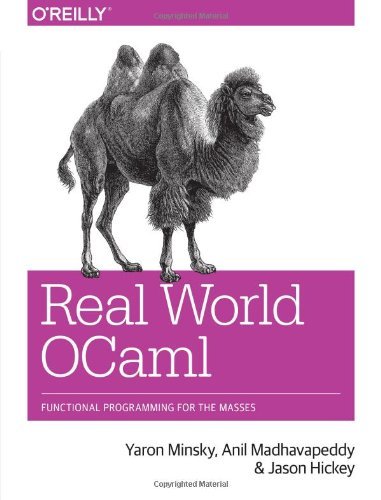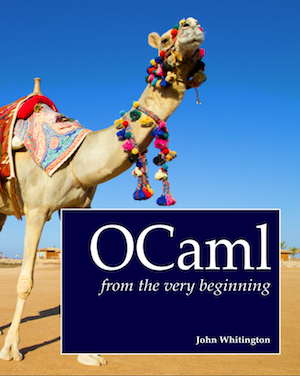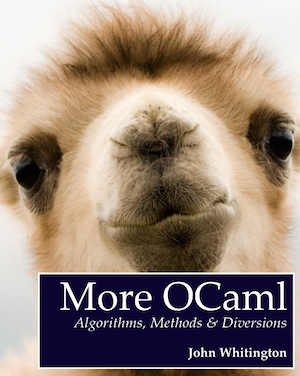Documentation
The OCaml Tutorials
The official OCaml tutorials (chapters 1 to 6 of the manual), written by the creators of the language, are the best place to start. They form a complete introduction to programming in OCaml, including the module system, objects, polymorphism, etc.
The OCaml API
This is the place you'll end up most often! You'll find the
documentation for all modules that ship with any OCaml
distribution. These modules form what is called
the Standard
Library. In addition, a special
module Stdlib contains
the core
library, and is always open.
The Tools
Many tools are bundled with the OCaml language. Among them, the REPL (or `toplevel'), the documentation generator, lexers, the debugger, profiling tools, etc.
The Language Extensions
Don't forget to regularly check the
Language Extensions,
they will keep you up-to-date with useful new OCaml idioms
and constructions.
The OCaml Manual
The complete documentation is bundled as a large OCaml Manual. This manual is also available in PDF, plain text, as a bundle of HTML files, and as a bundle of Emacs Info files.
Other docs
OPAM and package documentation
OPAM is the source-based package manager for OCaml. It allows you to install OCaml and packages. See the installation instructions. and the OPAM documentation.
The list of OPAM packages has links to their homepage and documentation. The distribution and API documentation of the packages you install locally with OPAM can be accessed via odig.
Books and Papers
Videos
In this talk, Mark Shinwell explains how to track down hard-to-find bugs in OCaml programs. It involves the new gdb functionality which OCamlPro and others have worked on recently. (PDF slides)
Talk at CMU describing the experiences that Jane Street has had using OCaml as its primary development language.
Experience Report: OCaml for an Industrial-strength Static Analysis Framework Pascal Cuoq and Julien Signoles; CEA LIST International Conference on Functional Programming (ICFP) Edinburgh 2009.

 OCaml License
OCaml License

 Cheat Sheets
Cheat Sheets


